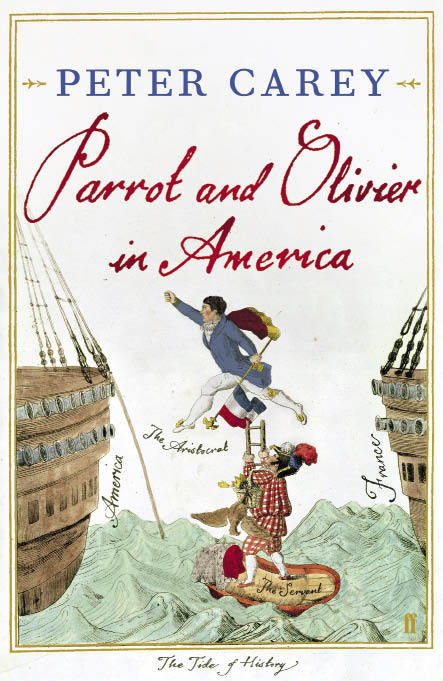Probably my opinion of this bold book is worthless. Peter Carey, having decided to write a novel about Alexis de Tocqueville’s visit to the United States in 1831-2, read, among many other works, my biography of Tocqueville, which was published two years ago in, he says, ‘the nick of time’. He is kind enough to call it ‘delightful’, and has plundered it assiduously. What I myself find delightful is the way in which Carey has picked up the signals. I never expected such a close, intelligent reader, and I’m glad to think my work has been of use to him. But this does not make me a dispassionate reviewer.
And nobody else has my reasons for studying Carey’s transmogrifications. He makes it as easy as he can for readers who know or care nothing about Tocqueville. He calls his hero Olivier de Garmont, giving him both a completely distinct personality and substantially different adventures in America. He invents a travelling companion for Olivier, a wastrel Englishman nicknamed Parrot; between them they give both sides of every question, and experience a good deal of sex and violence, neither of which happened to Tocqueville during his voyage, unless you count a shipwreck on the Ohio river.
Carey understands that historical novels nowadays have to manage a high bodice- ripping quotient, which he does his best to supply; and he leaves out a great deal of intractable material, such as Tocqueville’s journeys to Canada and on the Mississippi. Instead, we get chapters on Parrot’s grim childhood experiences as a fugitive on Dartmoor and aboard a convict ship bound for Australia (in which thrilling passages I thought I detected the influence of Robert Louis Stevenson).
Yet, even so, Carey has, I think, unduly stinted on the blood-and-thunder.







Comments
Join the debate for just £1 a month
Be part of the conversation with other Spectator readers by getting your first three months for £3.
UNLOCK ACCESS Just £1 a monthAlready a subscriber? Log in